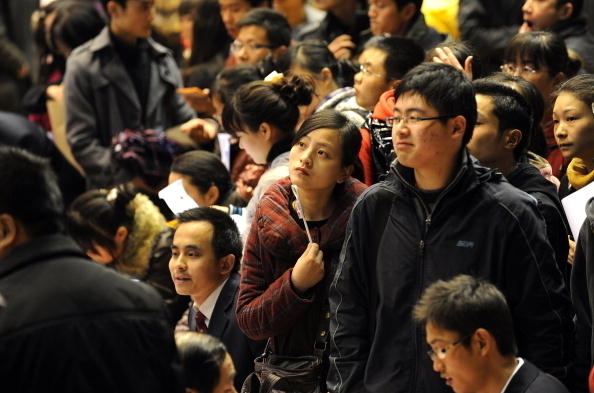Recently, the phenomenon of college graduates with undergraduate degrees going back to vocational schools for skills training has sparked discussions in China. It seems to signal a “structural shift” in the job market, reflecting fundamental changes in China’s economic reality.
A recent article on the Nikkei Asia website titled “Why Many Chinese College Graduates Choose to Attend Vocational Schools” mentioned the story of Gao Shenghan, who returned to the classroom at Baiyun Business and Technology College in Guangzhou as a fashion design student six years after obtaining a Bachelor’s degree in instrumental performance.
After graduating from university, Ms. Gao worked in various industries as a music teacher, restaurant owner, and even ran a clothing store. Eventually, she embarked on what many call a “rebirth” journey – returning to school for technical education.
The article commented that this trend also reflects a profound shift in the attitudes of top graduates from Chinese elite universities towards education and employment in a challenging job market.
Los Angeles Film School student Wang shared that he had seen similar examples while in mainland China, where undergraduates who couldn’t find jobs went back to study at vocational schools like railway colleges. Many railway positions are not filled through social recruitment but rather assigned directly to graduates of railway vocational schools.
He mentioned a friend who decided to study social work, despite the low monthly salary of just over a thousand yuan. The field drew a large number of applicants, reflecting the tough job market conditions. The article referred to this phenomenon as “deep-seated structural contradictions”: an oversupply of white-collar job seekers but a shortage of technical talents in emerging industries, all rooted in economic reality.
According to Chinese-American economist Li Hengqing, the structural changes are a result of economic downturn rather than solely education mismatch. The economic situation has rendered certain skills obsolete and left many graduates struggling to find suitable employment opportunities.
Li pointed out that during economic prosperity, families invested in various skills for their children’s futures. However, with the economic downturn, traditional skills like music teaching no longer offer viable career paths.
For college graduates, blue-collar technical work is no longer the top choice. White-collar positions in internet technology, education, real estate, and foreign companies are becoming scarce. This shift has been attributed more to political changes, such as crackdowns on various industries, than companies losing interest in expanding.
Regarding vocational education, it has been seen as a viable option for unemployed university graduates in China. Despite government promotion of vocational education with claims of high employment rates, the situation on the ground may not be as optimistic as portrayed.
While statistics suggest high employment rates among vocational school graduates, the data fails to highlight that many students pursue further education rather than directly entering the job market.
In terms of income, vocational school graduates lag significantly behind their counterparts with bachelor’s degrees. Many vocational school students are reluctant to enter blue-collar jobs, favoring delivery services and ride-hailing over factory work.
Critics argue that vocational education lacks adequate respect and appreciation from society, perpetuating a stereotype that positions vocational students at a disadvantage compared to traditional university-educated individuals.
The socioeconomic background of students attending vocational schools tends to be from more disadvantaged families. These students often come from families engaged in manual labor or service industry jobs.
Despite efforts to promote vocational education, it remains a less preferred choice for many young individuals in China. The societal value attached to degrees continues to play a significant role in career decisions among youth.
Against this backdrop, the future for Chinese university graduates looks increasingly challenging, with diminishing job opportunities and declining social value attached to educational qualifications. The evolving landscape may see university students becoming a significant force in advocating for change and freedom in the face of authoritarian challenges.

